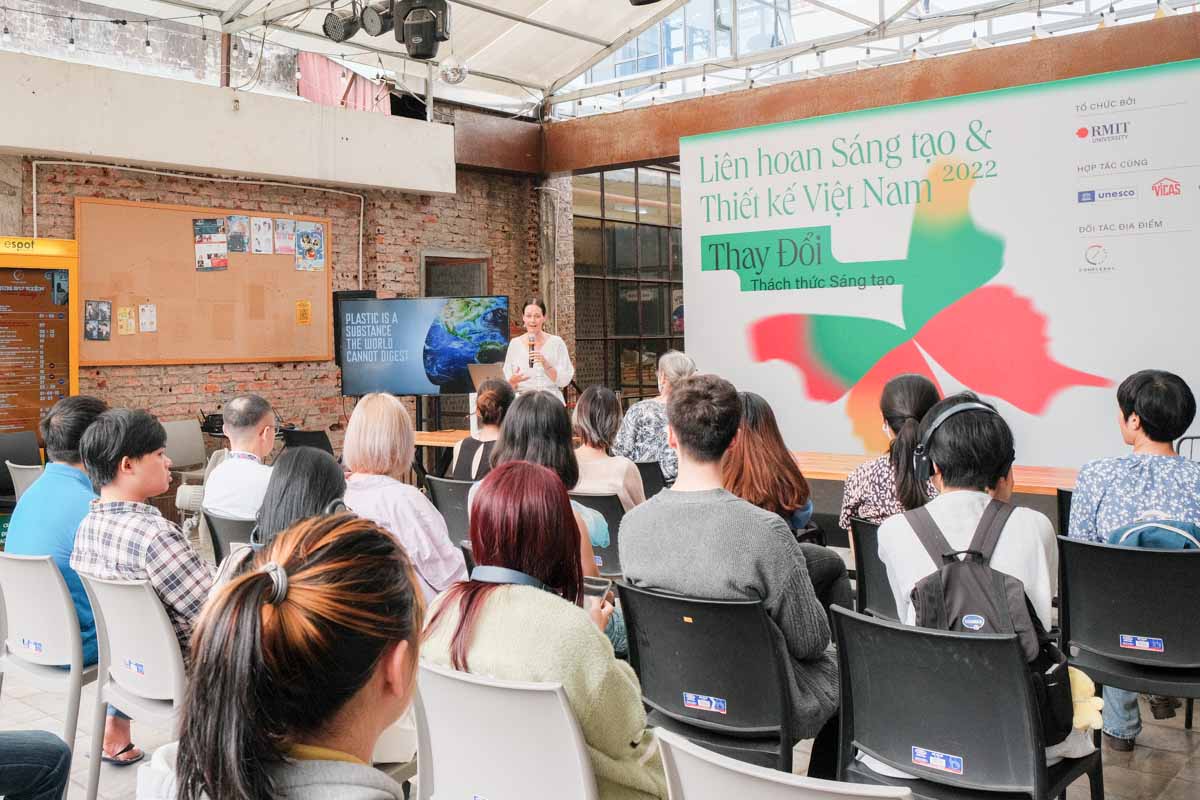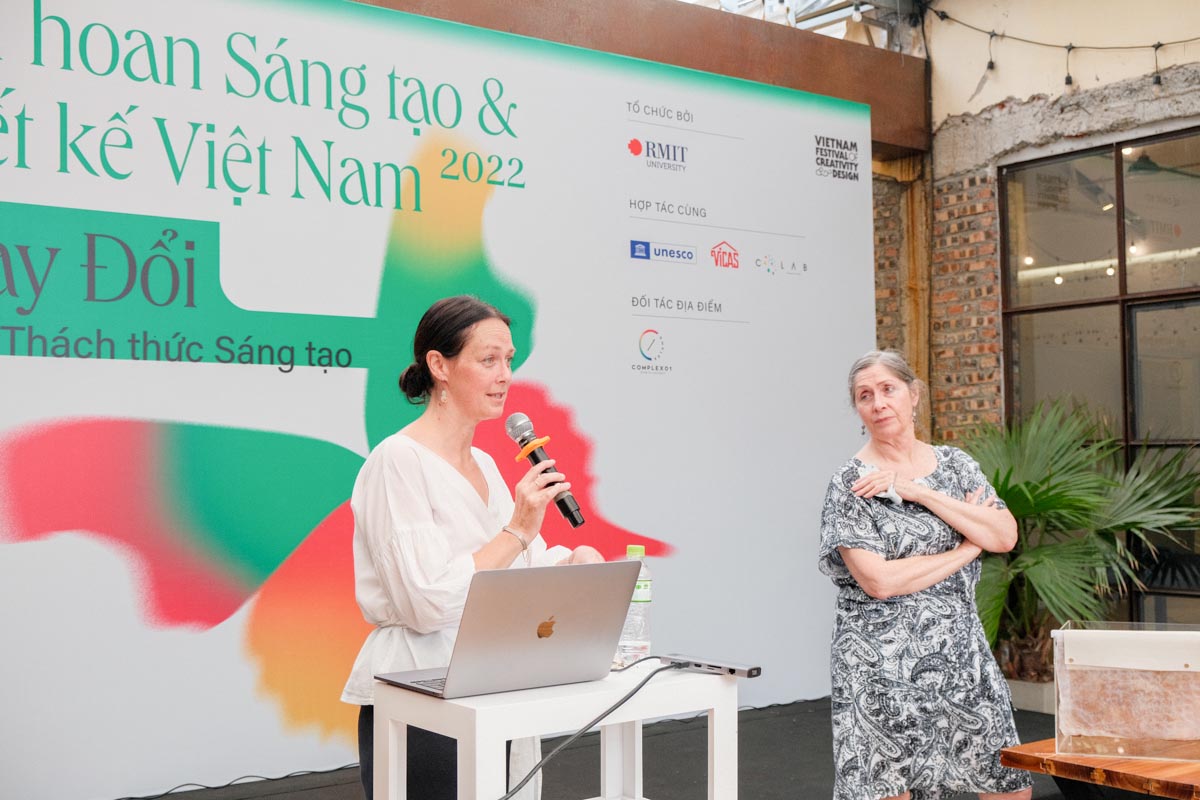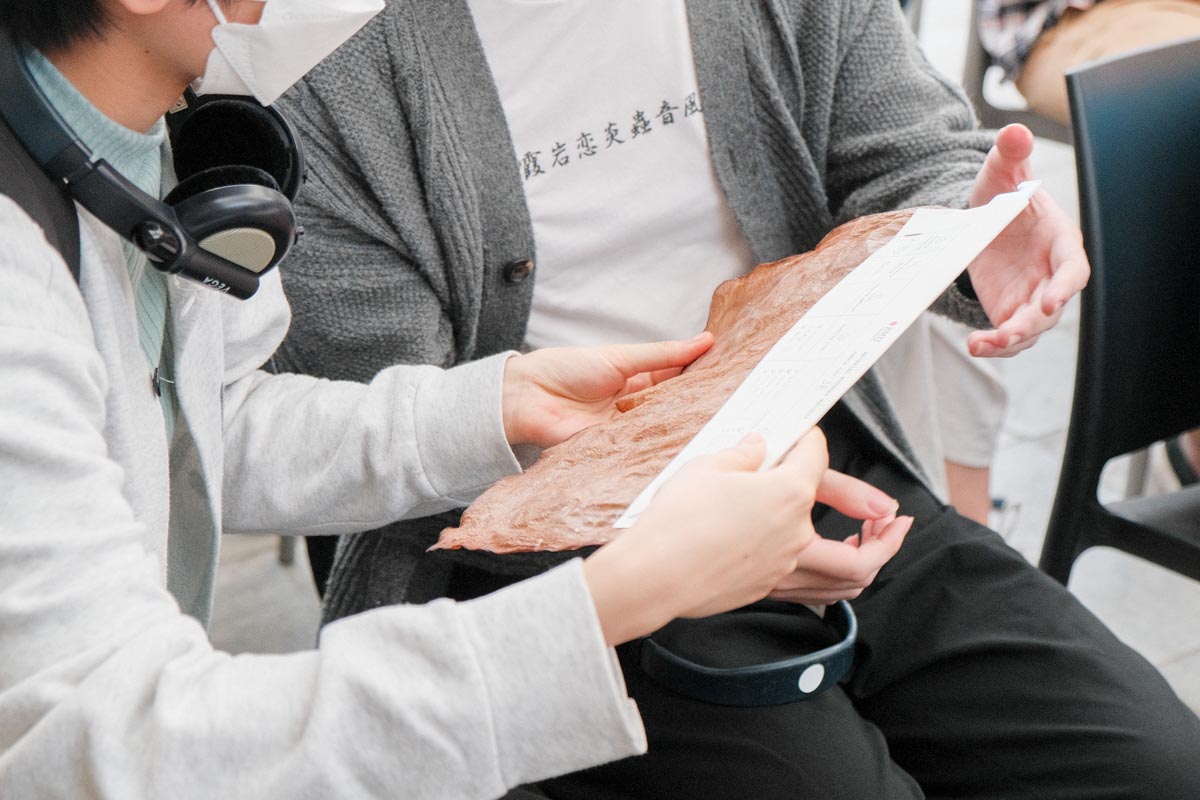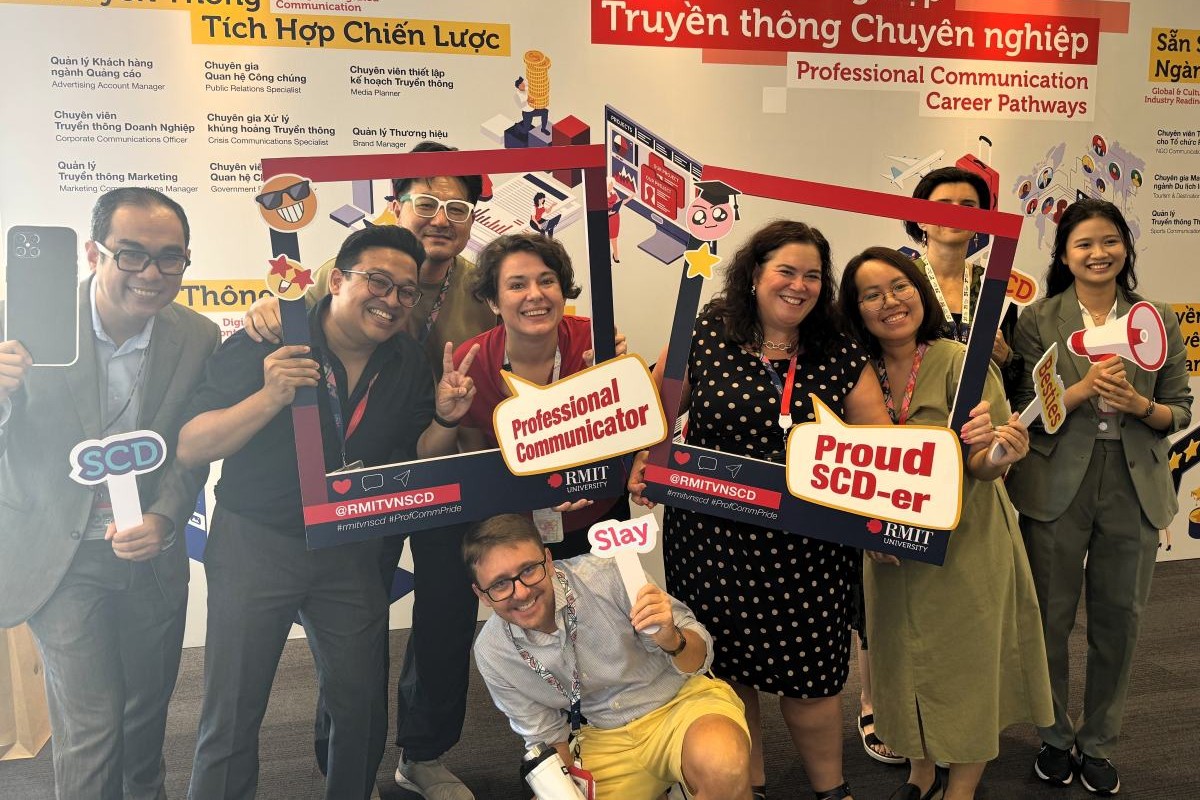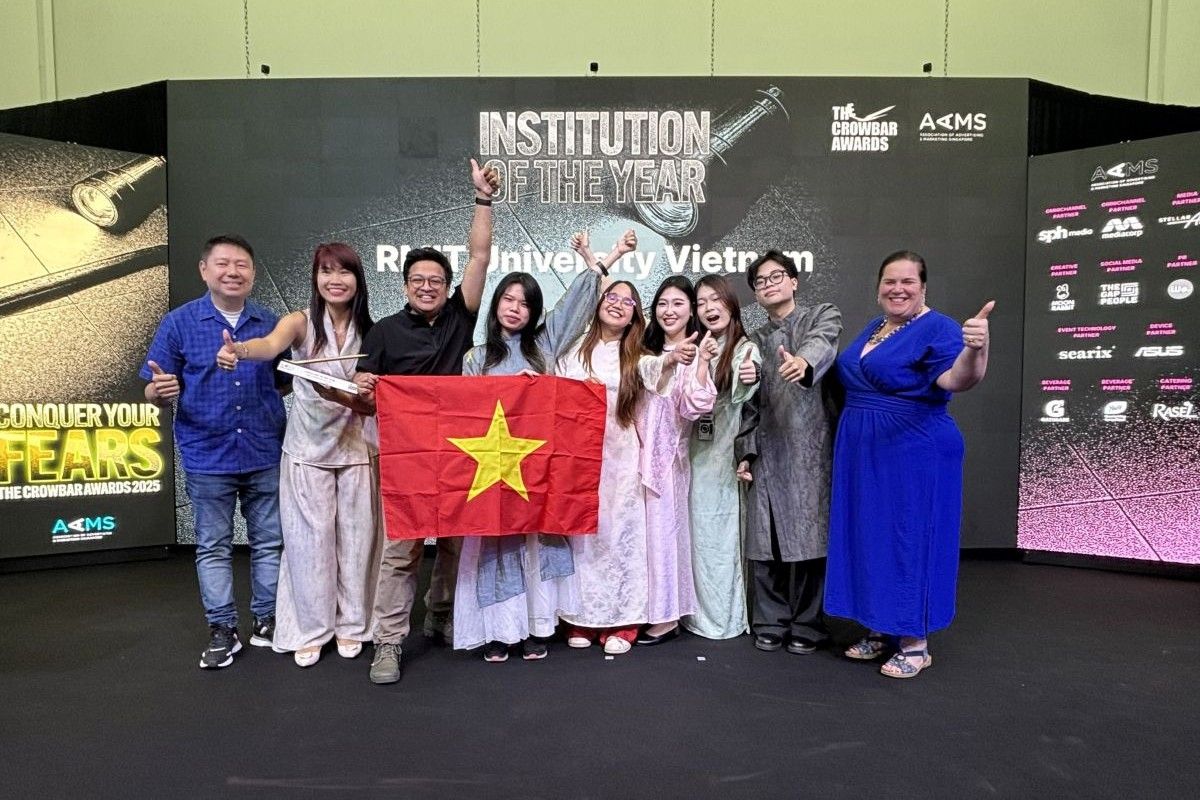Part of Vietnam Festival of Creativity & Design 2022, the event aimed to investigate the local context and prospects of growing and drying biomaterials to be a potential source of raw materials to replace existing fossil-based materials. This experimental project explored alternative forms of natural systems by growing and harvesting bacterial cellulose as textiles and textile structures.
This talk presented a project being conducted by Associate Professor Donna Cleveland (Deputy Dean, School of Communication & Design, RMIT Vietnam), Professor Frances Joseph (Professor of Material Futures in Huri Te Ao/The School of Future Environments at Auckland University of Technology, New Zealand), and Associate Professor Rajkishore Nayak (School of Communication & Design, RMIT Vietnam).
During the event, presenters discussed and showcased examples of the ways different locally available ingredients such as fruits, teas and sugars used to grow kombucha as a form of bacterial cellulose can alter the tactility and other characteristics of new biomaterials. Presenters considered these samples in terms of their physical and aesthetic properties, and their potential for design applications that propose alternatives to how we develop sustainable textiles.
In her presentation, Associate Professor Donna Cleveland pointed out the effects of harmful materials on the environment, such as synthetic plastics or animal skins, and the importance of finding a biomaterial replacement for these existing materials that we are used to.
“Plastic is not bad, but it is suitable for items and constructions with long-term use, which is counted in years, not the 45-minute life cycle of a plastic bag.
“Experimenting with bacterial cellulose as a potential biomaterial develops alternatives to synthetic petroleum-based materials with much lower environmental impacts. It also offers potential for localised production processes to develop unique new materials. Vietnam has an abundance of source materials for the production of sustainable and local bio-based alternatives”, she said.

